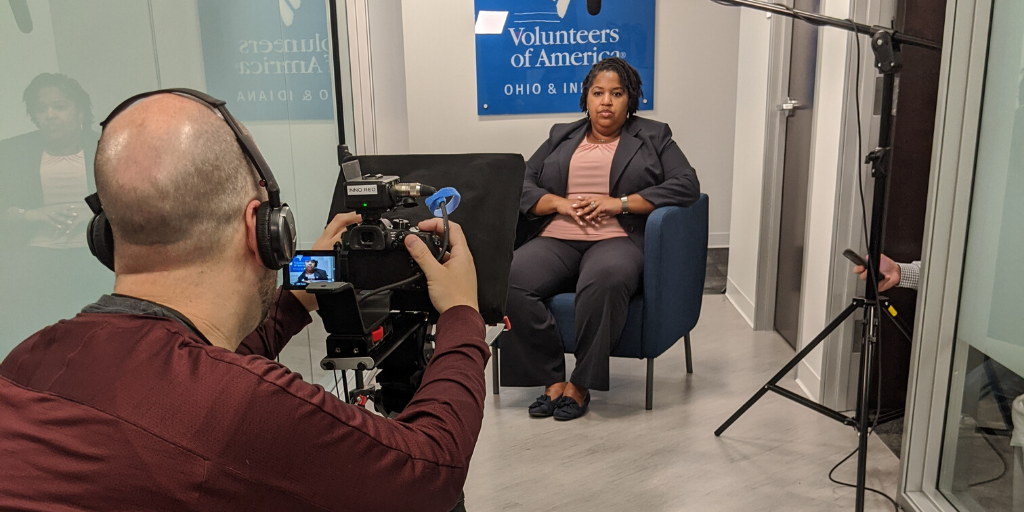Coping with a Crisis
May is Mental Health Awareness Month and while mental health is always critical, right now in this pandemic, mental health can be especially fragile. The stress of the unknown can wear on a person, causing symptoms of anxiety and depression to be amplified or even surface for the first time.
It’s important to remember there are resources available to help.

Dr. Kory Carey, a psychologist with Volunteers of America Ohio & Indiana, offers suggestions and practical tips to help cope with stress to stay mentally healthy.
“Feeling hopeless, impatient, isolated, or even bored are very normal reactions to abnormal circumstances. She reminds us that if we are experiencing some of these changes, we are human and we are not alone,” said Dr. Carey.
Tips for Coping in a Crisis
Stay connected to your social network.
- To the extent possible, stay in touch with your family, friends, faith communities, or others you deem as healthy supports.
- Have regular phone check-ins or write letters
- Start a book club or spiritual support group
Prioritize Good Self-Care
- Engage in healthy eating and sleeping habits
- Develop and implement a new sleep schedule, if needed.
- Try at-home workout routines, there are many free online workout being offered right now.
Reconnect with a hobby, interest or personal goal.
- Was there something you were passionate about before the crisis?
- Do you have a fitness goal or professional development you want to fulfill?
- Connecting to such activities can provide a healthy distraction while keeping you productive.
Find ways to give back.
- Identify a personal cause and determine ways to contribute at the local, national or international level.
- Consider volunteering as a tutor.
- Help organize an online fundraiser
Be aware of your own limits.
- Know when it’s time to take a break from news media or even other people who are closely tied to the situation.
- Trust your instincts and remember what has been effective for you before.
Know when it’s time to seek professional help
- Be aware of your warning signs and symptoms.
- Seek professional help especially if you are unable to perform daily functions effectively, have thoughts of self-harm or suicide.
Dr. Carey's tips are featured on Indiana Family & Social Services Administration (FSSA) new website BeWellIndiana.com which provides Hoosiers free expert mental health resources.
We are grateful to Indiana Family & Social Services Administration for providing us with the opportunity.
